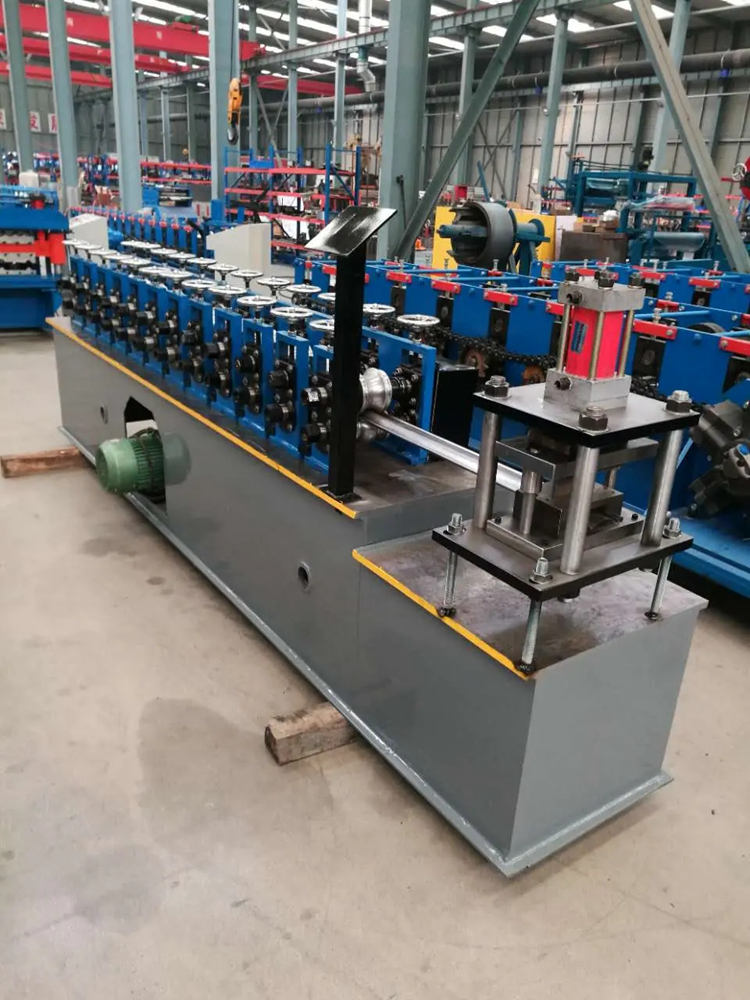The Evolution and Importance of Cable Tray Roll Making Machinery
In today’s rapidly advancing technological world, the demand for efficient and high-quality cable management systems has skyrocketed. One of the crucial components of these systems is the cable tray, which serves to support and organize electrical and communication cables in residential, commercial, and industrial settings. As industries evolve, so does the need for specialized machinery that can manufacture these essential components with precision and efficiency. This is where cable tray roll making machinery comes into play.
Understanding Cable Trays
Cable trays are structures designed to hold and support insulated electrical cables used for power distribution and communication. They come in various materials such as steel, aluminum, and fiberglass and are used in a variety of applications, from heavy industrial setups to sleek modern office buildings. The primary function of a cable tray is to provide a safe and organized route for cables while allowing for easy access, maintenance, and airflow around the wires.
The Role of Cable Tray Roll Making Machinery
The production of cable trays involves several processes, including cutting, bending, and welding. Cable tray roll making machinery is specialized tools that streamline these processes, enabling manufacturers to produce trays in large quantities while maintaining high standards of quality. The machinery operates using advanced roll forming technology, which is a continuous bending operation where a long strip of metal is passed through a series of rollers.
These machines can produce various shapes and sizes of cable trays, tailoring the products to meet the specific needs of different industries. By automating the roll forming process, manufacturers can significantly reduce production time, minimize material waste, and lower labor costs.
Key Features of Modern Cable Tray Roll Making Machinery
Modern cable tray roll making machines come equipped with several impressive features that enhance their performance and output
1. High Precision and Consistency Today’s machines utilize computer numerical control (CNC) technology, allowing for high precision in cutting and shaping. This ensures that each cable tray produced is uniform and meets exact specifications.
2. Versatility Advanced machinery is capable of producing various tray sizes and styles, including ladder trays, perforated trays, and solid-bottom trays. This versatility makes them ideal for manufacturers who serve different sectors.
cable tray roll making machinery
3. Speed The incorporation of automated systems allows for faster production rates, enabling manufacturers to meet high demands without compromising quality.
4. User-Friendly Interface Many machines feature intuitive control panels that simplify operation, making it easy for personnel to manage production processes.
5. Durability and Maintenance Designed for heavy-duty work, these machines are built with robust materials that require minimal maintenance, ensuring long operational lifespans.
The Impact on Cable Management Solutions
The introduction of cable tray roll making machinery has transformed the cable management landscape. With the ability to produce high-quality trays quickly and efficiently, manufacturers can respond more effectively to the needs of their clients. This is especially critical in industries such as construction, where time and reliability are paramount.
Furthermore, as more businesses prioritize eco-friendly practices, these machines allow for optimized material usage, minimizing waste and supporting sustainable manufacturing processes.
Future Trends
As technology continues to evolve, so too will cable tray roll making machinery. Future innovations may include the integration of artificial intelligence for predictive maintenance, enhanced automation for even faster production speeds, and improved materials that could lead to lighter and more durable cable trays. The continued development of these technologies will play a significant role in enhancing the efficiency, functionality, and sustainability of cable management systems worldwide.
Conclusion
In conclusion, cable tray roll making machinery is an essential part of the manufacturing process for cable management solutions, serving various industries with efficiency and precision. As demand grows and technology advances, these machines will undoubtedly evolve, helping manufacturers to meet the challenges of a dynamic marketplace while supporting the need for organized and safe cable management systems. The future of cable tray production looks promising, with innovations paving the way for even more efficient and sustainable solutions.







